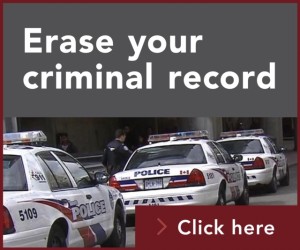
Home Legal Answers Criminal Law Firearms When is it legal to discharge a firearm in Canada?





In Canada, the laws and regulations surrounding the discharge of firearms are comprehensive and involve following rigorous legal requirements and adhering to strict safety measures. One of the primary legal requirements is the possession of a valid firearms licence. In Canada, individuals must obtain a firearms licence, commonly known as a Possession and Acquisition Licence (PAL), to both possess and discharge firearms. This licence requires individuals to undergo a background check, pass a safety course, and meet other eligibility criteria. If you have been charged with a firearms or weapons related crime, it is important to hire an experienced criminal defence lawyer as soon as possible.
The discharge of firearms is governed by both federal and provincial laws. The federal Firearms Act outlines the general regulations for firearms, while each province may have additional restrictions and requirements. Discharge offences and penalties are found in the Criminal Code. To legally discharge a firearm in Canada, other requirements – in addition to holding a valid firearms licence – must be met. Individuals must have a lawful reason for discharging a firearm. Common reasons may include hunting, sport shooting, or target practice. It is illegal to discharge a firearm for malicious purposes or in a manner that endangers the public or property. Provincial or territorial hunting acts may include prohibitions on hunting by season, ammunition type, maximum load, types of game, or transportation restrictions. Provinces and municipalities may also have zoning laws that prohibit or modify firearms uses.
There are several safety measures that must be followed to ensure the well-being of individuals and the surrounding environment. Firearms must always be handled responsibly and with caution. This includes proper storage, transportation, and handling procedures. Firearms should be stored unloaded and securely locked away when not in use. When transporting firearms, they should be in a locked container or fitted with a trigger lock. Individuals must always use proper ammunition for their firearms. Using incorrect or defective ammunition can result in serious injury or damage to the firearm. It is important to follow the manufacturer’s recommendations and guidelines for ammunition selection. Safety precautions, such as wearing ear and eye protection, should also be taken when discharging firearms.
Individuals must always be aware of their surroundings and ensure that there is a safe area to discharge their firearm. This means avoiding areas where the discharge of firearms is prohibited, such as residential areas or near schools. It is also essential to be aware of any potential hazards in the area, such as roads, buildings, or other individuals.
Under the Criminal Code, discharging a firearm with intent to endanger life is a serious offence that carries severe penalties. Two specific discharge offences are found in Part VIII – Offences Against the Person and Reputation, section 244 Bodily Harm and Acts and Omissions Causing Danger to the Person:
Punishment
(2) Every person who commits an offence under subsection (1) is guilty of an indictable offence and liable
Definition of place
(2) For the purpose of paragraph (1)(a), place means any building or structure — or part of one — or any motor vehicle, vessel, aircraft, railway vehicle, container or trailer.
Punishment
(3) Every person who commits an offence under subsection (1) is guilty of an indictable offence and
Along with the federal Criminal Code, there are provincial and municipal laws governing the use of firearms that deal with discharging firearms in prohibited areas, and careless use of a firearm. The specific penalties can vary depending on the circumstances and province, and may include fines, licence suspensions, or other consequences in addition to possible criminal charges. For example:
Under the Fish and Wildlife Conservation Act in Ontario, hunters who handle or discharge firearms without due care and attention or consideration for persons and property may be guilty of the offence of Careless use of firearm and are liable to a fine of up to $25,000 or imprisonment for up to two years – or both. Depending on the circumstances, a person may also be subject to charges under the Criminal Code.
Both Quebec’s Act to protect persons with regard to activities involving firearms (also known as Anastasia’s Law) and BC’s Firearm Violence Prevention Act prohibit firearms possession in public or community spaces (e.g., day care centres, schools, universities) or in vehicles used for public transit or school transportation. Penalties for an offence under the Quebec law include fines of up to $5,000.
Because laws and penalties may differ across provinces and municipalities, it is crucial to consult the specific regulations in the area where you reside or plan to discharge a firearm. Refer to 7800 Is it legal to own a firearm in Canada? for more information on provincial legislation.
View other answers for more information on firearms law, including licensing, owning, types of firearms, importing and exporting firearms, and firearm offences.
To erase your criminal record, call toll-free 1-888-808-3628 or learn more at Pardon Partners. It’s easier than you think.
If you have been charged with a crime, it is important to hire an experienced criminal defence lawyer as soon as possible. Contact our preferred criminal defence expert, Calvin Barry Criminal Lawyers for a free consultation at 416-938-5858 .